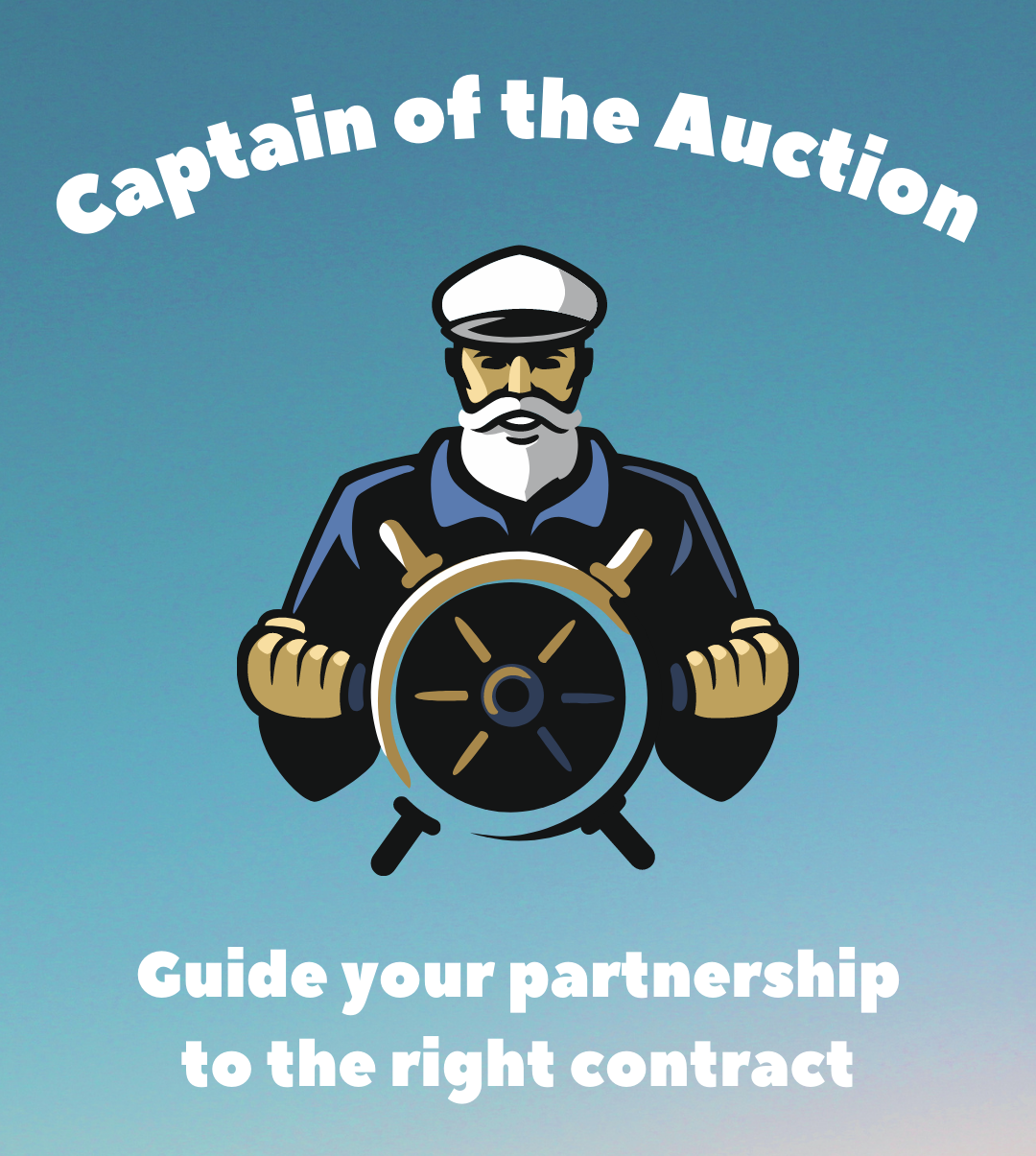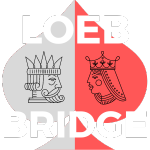 Auctions are most accurate when one partner limits their hand. When you limit your hand, your partner becomes the captain of the auction. The captain of the auction is responsible for placing the contract. They may be able to place the contract immediately, or may need to ask questions, like making a game try, to place the contract. The Captain of the Auction can use Fast Arrival to place the contract at game or Slow Arrival to make a slam try.
Auctions are most accurate when one partner limits their hand. When you limit your hand, your partner becomes the captain of the auction. The captain of the auction is responsible for placing the contract. They may be able to place the contract immediately, or may need to ask questions, like making a game try, to place the contract. The Captain of the Auction can use Fast Arrival to place the contract at game or Slow Arrival to make a slam try.
Here are some examples of auctions which limit your hand and make your partner the captain of the auction:
- A 1NT or 2NT opening bid limits your hand and makes responder the captain of the auction.
- A 1NT overcall limits your hand and makes your partner the captain of the auction.
- Responder's simple raise or invitational raise limits their hand and make opener the captain of the auction.
- A notrump rebid with an upper limit makes your partner the captain of the auction.
- Opener's rebid or jump rebid of their own suit limits their hand and makes responder the captain of the auction.
Your hand is unlimited if your bid has a range ending in "or more." In a 2/1 Game Force auction, both partners are unlimited. So there isn't a captain of the auction. Fast Arrival doesn't apply because no one has limited their hand. Wirh 16 or more points in a 2/1 Game Force auction, you shouldn't offer to stop in game without making a slam try. If you find a major suit fit, using or bypassing the Non-Serious 3NT slam try differentiates hands willing to cooperate with a slam try from hands with serious slam interest. In general, strong shapely hands should take the lead when looking for a slam because they are in a better position to count tricks.
Similarly, on an auction where opener and responder have bid 3 suits, no one has limited their hand. So the captain of the auction has not been established.
| South | West | North | East |
| 1♥ | Pass | 1♠ | Pass |
| 2♦ |
It is fair to say opener's hand (North) is limited by their failure to open a strong 2♣ or make a strong jump shift on their 2nd bid. However, opener's wide range (11 to 18) doesn't position responder to guide the auction. So no captain of the auction is established.
The captain of the auction is responsible for guiding the auction after their partner limited their hand. They can place the contract, make a game try, or make a slam try.
When your partner is the captain of the auction, you are responsible for answering the captain's questions. You cannot make a game try. However, you are not barred from bidding.
| South | West | North | East |
| 1♠ | 2♦ | 2♠ | 3♦ |
| Pass | Pass | 3♥ |
On the above auction, North's 2♠ bid limited their hand, making South the captain of the auction. When East competed to 3♦, South's pass says they don't want to compete or make a game try. If North has 4-card spade support, North can compete to 3♠ based on the Law of Total Tricks. On the above auction, North bid 3♥. Since North isn't the captain of the auction, North cannot invite game. North's 3♥ bid says they have a good holding in hearts and want to compete to 3♠. South may find this knowledge helpful if East-West compete to 4♦.
If North has a maximum, they could double 3♦ to say the hand bleongs to North-South, giving South the option of penalizing 3♦ or competing to 3♠.
| South | West | North | East |
| 1♠ | 2♦ | 2♠ | 3♦ |
| Pass | Pass | X |




